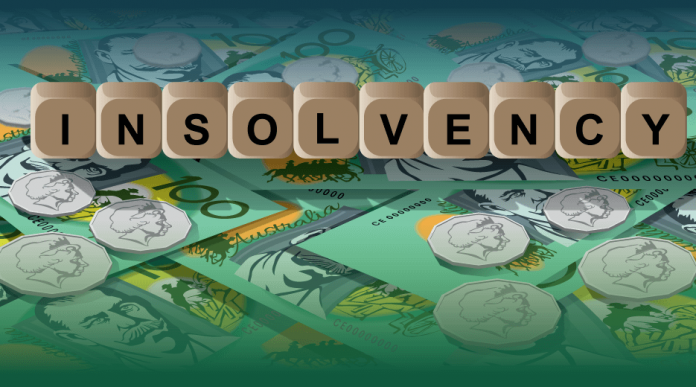This article is written by Pragya Bajpai, pursuing a Certificate Course in National Company Law Tribunal (NCLT) Litigation from LawSikho.
Table of Contents
Introduction
This article attempts to discuss the treatment of operational debt under the Insolvency and Bankruptcy Code, 2016 (“Code” or “IBC”) in case of default of installments under the Settlement Agreement. Prior to discussing the aforesaid, it is pertinent to examine the concept of operational debt, the default of debt, and default of installment under a settlement agreement with the help of relevant provisions of the Code and analysis of important judgments of the tribunal on this subject matter.
Operational debt : meaning and scope under the Code
Debt as defined under Section 3(11), “means a liability or obligation in respect of a claim which is due from any person and includes a financial debt and operational debt”. The aforesaid definition makes it clear that IBC deals primarily in two types of debt, namely, financial debt and operational debt.
Operational Debt is defined under Section 5(21) “to mean a claim in respect of the provision of goods or services including employment or a debt in respect of the repayment of dues arising under any law for the time being in force and payable to the Central Government, any State Government or any local authority” and Operational Creditor under Section 5(20) reads as “a person to whom an operational debt is owed and includes any person to whom such debt has been legally assigned or transferred.”
Simply put following transactions are considered as operational debt under the Code:
- Any amount payable in exchange for the provision of goods and services.
- Any amount payable in respect of any employment.
- Any amount payable to any government in the form of taxes, levies, etc.
Consider the following illustration for clearly understanding the scope of operational debt:
A enters into a contract agreement with B to supply consultancy services to B for a consideration of Rs. 3 crores along with a security deposit of Rs. 1 crore. B paid the consideration amount in exchange for services but the security amount deposited was not refunded by A once the contract got executed. Therefore in such a case, a Section 9 application under the Code read with Rule 6 of the Insolvency and Bankruptcy (Application to Adjudicating Authority) Rules, 2016 (“Rules” or “Rules, 2016”) can be filed for initiation of CIRP when there is a default made in the payment of the consideration amount but CIRP cannot be initiated with respect to any default made in payment or repayment advance security deposit.
It has been similarly held in the case of Col. Vinod Awasthy v. AMR Infrastructure Limited that operational debt can only be confined into the four categories i.e. goods, services, employment, and government dues. Similarly for a person to be an operational creditor the tribunal placed reliance on the observations of the Bankruptcy Law Reforms Committee’s final report, para no. 5.2.1, which states:
“Operational creditors are those whose liability from the entity comes from a transaction on operations. Thus, the wholesale vendor of spare parts whose spark plugs are kept in inventory by car mechanics and who gets paid only after the spark plugs are sold is an operational creditor. Similarly, the lessor that the entity rents out space from is an operational creditor to whom the entity owes monthly rent on a three-year lease.”
The tribunal, while determining the scope and ambit of Section 9 applications under the Code, concluded that Section 9 read with Section 5(21) and Section 5(20) cannot include within its scope the cases where the dues are on account of advances made to purchase flat from a commercial company when the petitioner has other alternative effective remedies under Consumer Protection Act and general land laws.
A similar approach was undertaken for the purpose of interpretation of the term operational debt in the case of Smt. Andal Bonumalla v. Tomato Trading LLP wherein it was held that an advance payment made for the supply of goods cannot be termed as operational debt. Further, the definition of operational debt has been widely interpreted on a case-to-case basis thereby determining its scope of operations with respect to the initiation of CIRP proceedings under the Code.
Default of installment under the settlement agreement
The IBC sets out the mechanism of resolving companies off their debt. It is important to note that such a mechanism is triggered only once there has been a “default” made in the payment of debt undertaken by operational or financial creditors. Under Section 3(12) of the Code “default” reads as, “means non-payment of debt when whole or any part or installment of the amount of debt has become due and payable and is not paid by the debtor or the corporate debtor, as the case may be.” Therefore, the default of debt is said to have occurred when an amount as decided under an agreement between the parties has not been paid by the corporate debtor on the date or the period of time when the debt became due. Consequently, thereafter a CIRP application may be initiated.
In the judgment of M/s Brand Realty Services Ltd. v. M/s Sir John Bakeries India Pvt. Ltd., the important point considered by the New Delhi bench of National Company Law Tribunal (“NCLT”), is whether default of installments under Settlement Agreement will be considered as operational debt under the Code? To arrive at a decision, the tribunal has gone through the judgment of Hon’ble NCLT Allahabad Bench in the matter of M/s Delhi Control Devices (P) Limited v. M/s Fedders Electric and Engineering Ltd. wherein it was held that,
“Unpaid installment as per the settlement agreement cannot be treated as operational debt as per Section 5(21) of IBC. The failure of breach of settlement agreement can’t be a ground to trigger CIRP against Corporate Debtor under the provision of IBC 2016 and remedy may lie elsewhere not necessarily before the Adjudicating Authority.”
Let us further analyse the findings of the NCLT, New Delhi bench in a wider context along with the relevant provisions of the Code.
Facts
- M/s Brand Realty Services Ltd. (“Applicant” or “Operational Creditor” or “OC”) filed an application under Section 9 of the Code read with Rule 6 of Rules, 2016 against M/s Sir John Bakeries India Pvt. Ltd. (“Corporate Debtor”) seeking initiation of CIRP against the CD.
- The OC provides investment and advisory services to the CD for setting up his new retail outlet as agreed under the Agreement dated 28.11.2014. On 15.06.2018, the two entered into an Account Settlement Agreement (“Agreement”) wherein the CD agreed to pay the outstanding dues amounting to Rs. 33,94,000/- vide post-dated cheques. (“PDCs”). However, the same was returned unpaid to the OC on account of “Stop Payment”.
- On persistent default in payment on part of the CD, the OC served a demand notice to the CD on 30.04.2019 to which the CD replied only after expiration of the stipulated period of 10 days as given under Section 8(2) of the Code.
- Thereafter, the OC prayed to initiate insolvency proceedings against the CD on account of unpaid debt amounting to Rs. 54,94,874/- as shown in the working sheet.
Judgment and analysis
- The tribunal after hearing the submissions of both the parties has found that the present application has been filed for the breach of terms and conditions of the settlement agreement dated 15.06.2018 that was entered by the parties to settle the account due under the agreement dated 28.11.2014 under which the OC had initially raised invoices.
- Therefore, since the Section 9 application made by petitioners is with respect to a breach of terms and conditions of a settlement agreement, the issue in question is whether any default made in the payment of dues under a settlement agreement will come under the definition of operational debt or not?
- The tribunal referring to the definition of debt, operational debt, and default under the IBC observed that in order to initiate insolvency proceedings under Section 9 of the IBC read with Rule 6 of Rules, 2016, an operational creditor has to establish a default for non-payment of operational debt. Simply stating that if an operational creditor cannot establish default in payment of the operational debt then in such a case they cannot initiate CIRP under Section 9 of the IBC.
- Reiterating the settled principle of law, the bench held that NCLT is not a recovery tribunal i.e. the insolvency proceedings can be initiated against the CD only when a default in payment of either operational or financial debt has occurred.
- Therefore, as per the facts and circumstances of the present case, default of installment of the settlement agreement does not come under the definition of operational debt, consequently, the application for initiation of CIRP against the CD is dismissed.
Summary of Tribunal’s observations
Final observations made by the tribunal can be summarised as follows:
- For the purpose of initiating CIRP under Section 9 of the Code, the relationship between the parties to the dispute should be that of an operational creditor and a corporate debtor. For instance, as in the present case, the petitioner failed to establish a similar relationship owing to the fact that the CIRP application was filed with respect to the default made under the settlement agreement entered between the parties to settle the dues arising out of the agreement under which the invoices were initially raised by the creditor in exchange of consultancy services.
- Subsequently, any unpaid installment under the settlement agreement cannot be termed as “operational debt” under Section 5(21) of the Code and a breach of the settlement agreement cannot be a ground to initiate CIRP.
Conclusion
In the author’s opinion, it has been clarified time and again from a case to case basis that NCLT is not a debt recovery tribunal. Therefore any application that amounts to the subject matter of recovery of money due to any of the creditors will not be subject to adjudication by the tribunal. For matters relating to debt recovery, the applicant may prefer other effective alternative remedies available to him elsewhere.
Similarly, an application made for the purpose of default in payment of installment under a settlement agreement will not be considered an operational debt. Therefore, CIRP proceedings may be initiated by an operational creditor only when a default has been made in the payment of operational debt i.e. amount due in exchange of goods, services, employment, or government dues.
References
- Bankruptcy Law Reforms Committee, The Final Report of the Bankruptcy Law Reforms Committee (2015). Access here: https://ibbi.gov.in/BLRCReportVol1_04112015.pdf.
- Smt. Andal Bonumalla v. Tomato Trading LLP, Company Appeal (AT) (Insolvency) No. 752 of 2019. Decision date- 20.08.2020. Access here: https://indiankanoon.org/doc/22608881/.
- M/s Brand Realty Services Ltd. vs M/s Sir John Bakeries India Pvt. Ltd. (IB)1677(ND)/2019. Decision date- 22.07.2020. Access here: https://ibbi.gov.in/uploads/order/433e478c97e3d82f459050efced61f6b.pdf.
Students of LawSikho courses regularly produce writing assignments and work on practical exercises as a part of their coursework and develop themselves in real-life practical skills.
LawSikho has created a telegram group for exchanging legal knowledge, referrals, and various opportunities. You can click on this link and join:
 Serato DJ Crack 2025Serato DJ PRO Crack
Serato DJ Crack 2025Serato DJ PRO Crack










 Allow notifications
Allow notifications


